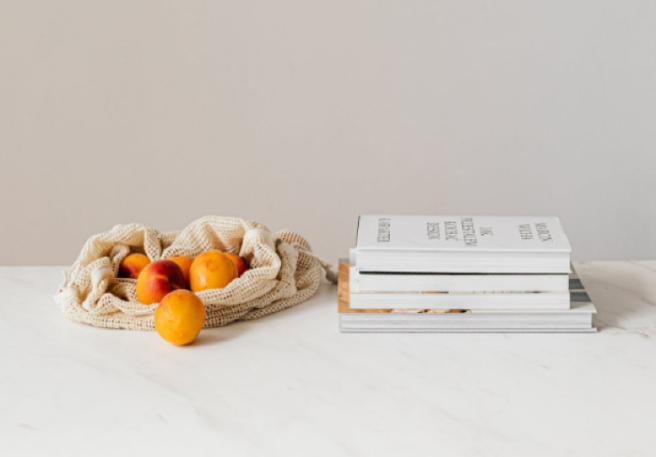
Here are 10 easy ways to be more eco-friendly at home
We asked Tru Eco™ for their tips on the easiest ways for us to go green this Autumn – here are their top 10:
Reduce the number of single-use plastic bottles in your household.
This can be done by opting for products that have a refill option and even better if they are eco-products. It can also be done by using all-purpose cleaners for the kitchen, bathrooms, and floor. You could also go back to basics if you are ready and use soda crystals and vinegar to clean your floor.
Use eco-products where affordable
Eco brands are far more friendly to the environment and pose less threat to our wellbeing than conventional brands. Without the strong vapours of artificial fragrances, they are also more pleasant to use. Eco-friendly products allow water treatment processes to work effectively, thereby improving the quality of the water which returns to our rivers and lakes. Good product labelling to look out for is biodegradable, plant-based, and septic-tank friendly.
Reduce the amount of product you use – “just add a drop”
There is no need to use a generous squirt and we often use more than we need of products such as washing-up liquid, laundry detergent, and cleaners. This will save you money and reduce your carbon footprint as well and your plastic footprint on our planet.
Make one single-use plastic change
How can one tackle such a large and complex environmental issue? Well, no one can do everything. But everyone can do something. Ecoy started when founders, Sam and James, asked that exact same question. The team researched deeply and realised that the negative impact of single-use plastics is being overlooked by the masses. The guys also realised that bamboo is an amazing and versatile material. As a result, everything carried by Ecoy contains bamboo components as testament to its unique balance of sustainability and high quality. Help the planet while enjoying premium feeling products.
Use laundry liquid instead of laundry powder
There are fillers in laundry powders that can cause clogging in the treatment process and prevent the wastewater from being treated properly. Again, the effects of this are likely to have a greater impact on those with on-site septic tanks but fillers also increase the sludge burden at larger treatment plants which must be separated, transported, and sometimes heat or chemically treated. Then the sludge is transported once more for land application. Using laundry liquid helps to reduce these energy intensive-processes.
Stomp out cling film and reduce tin foil
Do we need to use these items or has it just become a habit? Cling film is non-recyclable and adds to the plastic waste stream. As for tin foil, aluminium requires a huge amount of energy to produce including mining for bauxite ore as well as having some health and environmental impacts. Perhaps the answer lies in the past; place a plate over that bowl in the fridge like we used to. If you would like to keep things covered and your space is too limited to use the bowl and plate method, you could look for some eco-sandwich bags, which are great for putting that left-over cheese or broccoli in before you place it in the fridge. If you cannot see through the container use a marker to label contents. Reusable beeswax products can also be used as an eco-friendly alternative to cover food and they can be used over and over.
Cut out plastic bags
We usually only use bags for a short time and therefore compostable bags, which will biodegrade leaving no lasting impact on the planet, are the way to go, not just for composting but for lining our main bins and as bathroom bin liners. There are now many brands widely available at affordable prices.
Bring your own bags to the supermarket for fruit and vegetables
This effectively cuts down on the amount of waste that you bring into your house from the supermarket. A lot of the cheapest deals come already packaged but even a little consumer behavioural change will help drive producers to devise greener ways of packaging.
Compost your vegetable material
Making your own compost is one of the most rewarding and environmentally friendly things you can do! Just place your raw fruit and veg waste along with grass cuttings into a compost bin and then use this to feed your flowers or plants months later. The small compost bin is relatively inexpensive and in the long term, it will save you from buying compost not to mention the plastic bags which they come with. Using the municipal composting bin is a second-best option if you cannot have your own compost bin.
Grow your own
The ultimate thing you can do in your home to help the planet is to grow your own vegetables. It saves on carbon and plastic packaging footprints; it reduces the number of chemicals we eat and the process is very rewarding and good for us. There are lots of Grow Your Own (GYO) groups around Ireland for those who are a little unsure about starting.
Proudly brought to you by Tru Eco™ – the full range is available in Dunnes Stores and SuperValu nationwide.
Tru Eco™ Product descriptions in brief:
- Tru Eco™ All-Purpose Spray, Natural Citrus is available in two sizes 500ml and 1.5L at an RRP of €3.50 and €7.50 respectively.
- Tru Eco™ Washing-Up Liquid, Natural Citrus is available in two sizes 500ml and 1.5L at an RRP of €2.60 and €6.50 respectively.
- Tru Eco™ Non-Bio Laundry Detergent, Natural Breeze is available in 1.5L at an RRP of €7.90.
- Tru Eco™ Fabric Softener, Natural Breeze is available in size 1.5L at an RRP of €5.90.
For more information visit www.vivagreen.ie






